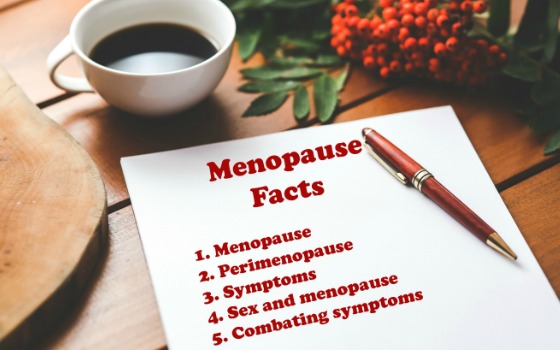Picture it: Yo u’re about to leave the house to make a grocery store run. You get as far as the driveway when you realize you forgot your purse. Simple enough to rectify, right? You turn around, keys in hand, and go back in the house. By the time you get to the kitchen, you can’t remember what you went in the house for in the first place.
u’re about to leave the house to make a grocery store run. You get as far as the driveway when you realize you forgot your purse. Simple enough to rectify, right? You turn around, keys in hand, and go back in the house. By the time you get to the kitchen, you can’t remember what you went in the house for in the first place.
I often find myself fumbling over my words with the simplest of things: my dog’s name, the word ‘zucchini,’ the restaurant I ate at two weeks ago. And worst of all, I know what I’m trying to say, but the disconnect between my brain and my mouth is wide and deep. It’s exasperating when your thoughts don’t crystalize into something clearer.
Could menopause be the culprit? Well, sort of. When we reach menopause, the hormone progesterone begins to diminish. The reduced level of progesterone can lead to irritability, mood swings, thinning hair, confusion and forgetfulness. Also, during menopause, your working memory (“memory that involves storing, focusing attention on, and manipulating information for a relatively short period of time (such as a few seconds)” [Merriam-Webster]) doesn’t perform as well.
Frustrating, isn’t it? And confusing. And disorienting.
Menopause Brain Fog
This cognitive disengagement is called brain fog and it can affect our memory, attention span, concentration and how we adapt to stress. If you’re disorganized, forgetful, and you lose focus, you may be suffering from brain fog. It’s also a symptom of menopause, and it can sneak up on you.
Is menopause brain fog a real thing? According to a Study of Women’s Health Across the Nation (SWAN), and contrary to what many doctors have failed to acknowledge, cognitive decline does occur during menopause.
How to Deal with Menopause Brain Fog
Stay Hydrated
This should go without saying. Water is so beneficial to your body – and that includes your brain. It not only plays a critical role in removing toxins from the brain, but it also provides nutrients to the brain. When you sweat or eliminate waste, you could be losing up to two liters of water a day. Your brain can shrink in volume when you’re dehydrated, so it’s crucial that you drink up.

Exercise Your Body
Want to get happy? Exercise! Not only is exercising good for your overall health, it releases endorphin hormones which triggers a positive, feel-good sensation. That feeling equates to happiness. It also clears your head, helps your body produce new brain cells and increases blood flow to the brain, which in turn delivers more oxygen, making it easier for you to think clearer.
Exercise Your Mind, Too
Now that you have your body active, do the same for your mind. Mentally stimulating the brain with activities such as crosswords puzzles, reading, sudoku and other brain games can help keep you sharp, keep the fog at bay and improve your mental clarity.
Develop Better Eating Habits
Pizza, ice cream, sugary drinks, French fries and processed foods may taste good, but they really aren’t beneficial to your body. Processed foods, which are loaded with sugar, trans fats and additives, don’t provide healthy nutrients for your brain and they likely aren’t doing your waistline any favors either. Ditch the junk and, instead, try brain foods such as walnuts, berries, dark chocolate (in moderation), avocados, eggs or fish high in omega-3 fatty acids (sardines, salmon or mackerel). These are foods that can supercharge your focus, cognitive abilities and memory.
B12 Supplement
When your body is deficient in vitamin B12, the end result can be brain fog. Vitamin B12 helps with healthy cell production, it’s a building block that the body uses to produce DNA, helps lower levels of homocysteine (a stress hormone) and energy production.
Sleep
Are you running on the bare minimum amount of sleep? Getting a good night’s sleep can improve your attention span, improve your mood and enhance your memory. Not getting a good night’s sleep can have an adverse impact on your thinking, with some side effects mimicking the effects of being inebriated.
Menopause brain fog. It’s real, and it’s a common symptom of menopause, but it doesn’t have to be as foreboding as it appears. In time, your hormones will settle down and behave themselves. In the meantime, take active steps to curb the onset of brain fog with lifestyle changes, healthy eating and a positive mindset.





I definitely know that menopause fog is a real thing but, for me at age 66, I don’t think it ever went away completely. So two of your observations are of interest – one, the vitamin B12, which my spouse has been encouraging me to take. The other, sleep. Because of pain issues and stress right now, I find it difficult to have good sleep two nights in a row. At least, being on Weight Watchers, I have better eating habits than I used to have at one time.
You are so right, Alana; it’s real. And finding what works best for us is a process. You may try some or all of these and still not find relief. I’m not doctor; I just know what I’ve read from researching. But see if B12 is right for you. Check with your doctor to see if a supplement of that type will work. I’m sorry to hear you’re in pain and I hope that is alleviated soon. Thanks for kicking off the conversation, Alana.
I think drinking water is important and eating well makes a huge difference. Keep yourself stimulated by always learning new things. I’m not much into games but always curious.
I have to say, Rebecca, I drink more water now than I did when I was younger. Back then, I was of the opinion that if I’m drinking something, it HAS to be flavored (tea, soda, alcohol, etc.). Now I’m much more amenable to h20!
I definitely relate to this. Last year I had a hysterectomy and I feel as if I’ve been on a roller coaster ever since. I forget the simplest things and have to recheck myself constantly. I’m very interested in those B12 supplements! I’ve finally improved my sleeping habits, but my eating habits suck. I usually only eat one meal a day and that’s in the evening. I constantly forget to eat!
Rena!!! You forget to eat?!? 😲 Oh goodness, don’t skip meals…make it at least 3 a day. And I’m totally with you on forgetting things. It’s so random and frustrating. 😔
I need to start taking B12 again because I never seem to leave the house with everything I need. My grandkids now ask me 20 questions before we leave. It is real!
Brain games definitely help to keep my brain sharp. And although this isn’t a brain game, I love Stupid Zombies! (I’m probably the only person who still plays it!!!😁 Luckily, I don’t have too many issues anymore with brain fog (at least I don’t think I do…hey, maybe I don’t remember?!? 😉) Thanks for joining the conversation Doreen.